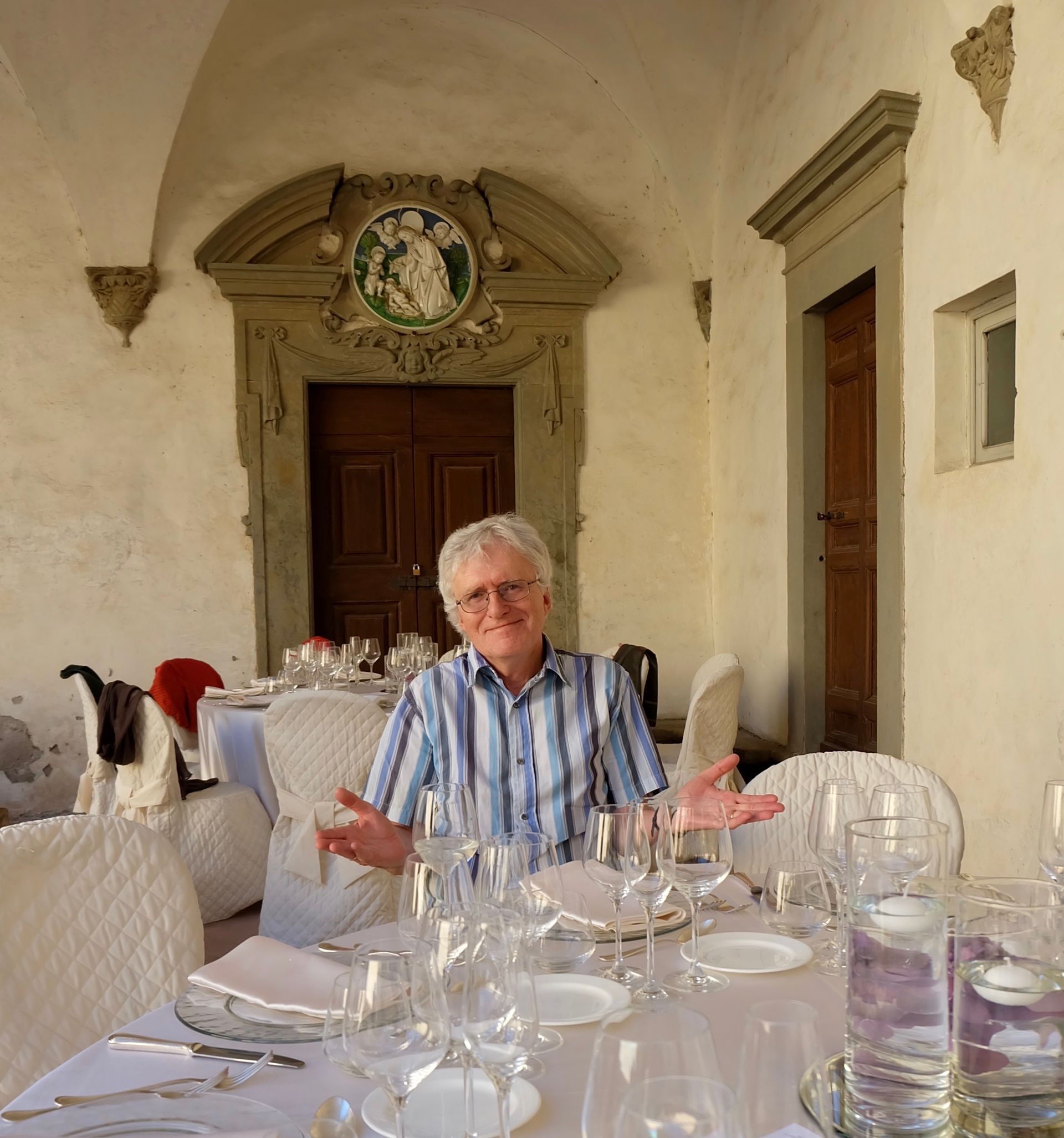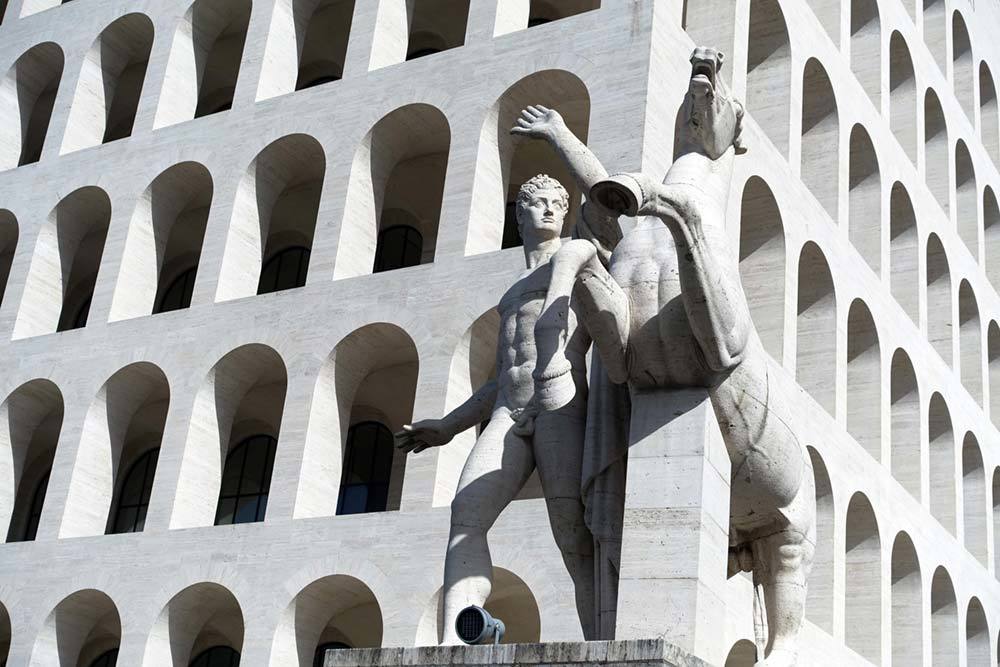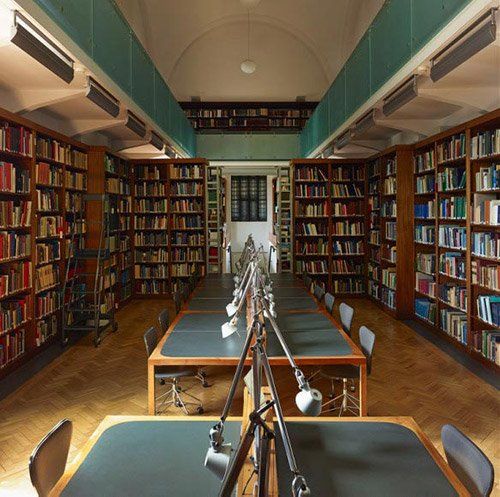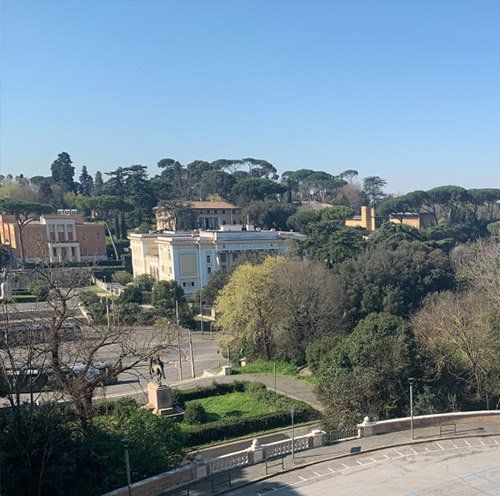At the beginning of March this year I travelled to Italy to undertake research for my PhD thesis on the topic of Race and Romanità in Fascist Italy as a
recipient of the ACIS/Cassamarca Dino De Poli Scholarship for 2020. My intention was initially to spend two weeks at the
British School at Rome
(BSR), before travelling north for around nine weeks to undertake archival research in Salò, Trento/Bolzano, and Trieste, before returning home in May. Little did I know upon my arrival at the BSR on Monday 2 March that, due to the outbreak of the COVID-19 Coronavirus, not only would I not be able to leave Rome and travel north, but that I would in fact have to leave Italy by the end of the month.
When I arrived at the BSR, the virus had already been detected in Italy (primarily in Lombardy and Veneto), but infection numbers were still reasonably low, and I didn’t really think at this point that my travel would be impeded. Given that the outbreak was in the well-resourced north of Italy, I assumed that the virus would be contained reasonably quickly and there would be no ongoing major interruptions. How naïve and wrong I would turn out to be! Before I knew it, not only were the northern regions locked down, but so too was the entire country. All schools, libraries, universities and businesses were closed, with the exception of essential services (supermarkets, pharmacies, health professionals etc.). Social distancing measures were quickly introduced, both internally at the BSR, and if we were to venture outside. Permission slips were required to go out of the BSR, for example to the supermarket. Police could, and would, stop and check to ensure that anyone outside was there for a legitimate reason, and would readily issue fines if not. These measures seem standard procedure now; however, at the time, they were new, and a little unsettling.
The speed in which the virus spread, and that life changed in Italy, took all of us at the BSR by surprise. Our heads were in a spin; it was difficult to grasp the sheer increase in infection numbers, let alone the volume of deaths, every single day. Though we were safely contained within the residential walls of the BSR, the rapidly increasing numbers and constantly changing situation made it hard to concentrate on anything. The daily news of the deteriorating conditions in Italy — whether it was of the war-like conditions in increasingly strained hospitals where medical professionals had to choose between who lived and who died based on best chance of survival; of entire villages disappearing because everyone had died; of army truck convoys tasked with transporting coffins because the numbers were far too great for civilian hearses to deal with; or of coffins mounting up in churches because morgues were full — was almost too surreal to seem true.
Even so, until a week or so before I left Italy, we thought things would improve and that we could stay and wait it out. However, when the decision came on 18 March to close the BSR and that we should all make arrangements to leave, the reality of the situation really hit home. At this point, the stress of the previous couple of weeks began to take its toll; we knew that we would now have to leave our safe enclosure and venture out, whether it was to travel back to Australia, like myself and some fellow Australasians, or those returning to the UK where conditions were getting increasingly worse, or elsewhere in Italy. For the first time we felt at risk ourselves, and really, for the first time, I felt a little frightened, for the health and safety of both myself, and my fellow residents.
I subsequently flew out of Italy on Saturday 21 March, arriving home in the early hours of Monday 23 March; just three weeks after having arrived in Rome. In those three weeks, life, not only in Italy, but throughout the world, has radically changed. I have just completed my two weeks of home quarantine and am relieved to say I have not exhibited any COVID-19 symptoms. Australia is now of course on lockdown as well, though luckily the situation has not appeared to have escalated quite as quickly as it did in Italy — yet. I am thankful in hindsight that I decided to start my travel at the BSR, rather than head to northern Italy straight away, or my story may have been a very different one. I am also extremely grateful to both the ACIS Committee, and Dr Catherine Kovesi in particular, for the support that I received while in Italy. The timing was incredibly unfortunate, though, of course, could not possibly have been foreseen. The day that I left Italy, the death toll was around 5000; today, just over two weeks later, it is more than 18,000. Whether the world returns to ‘normal’ or not is yet to be seen; the rapid spread of the virus is unprecedented, and, at this stage, the world remains cautiously on hold.











